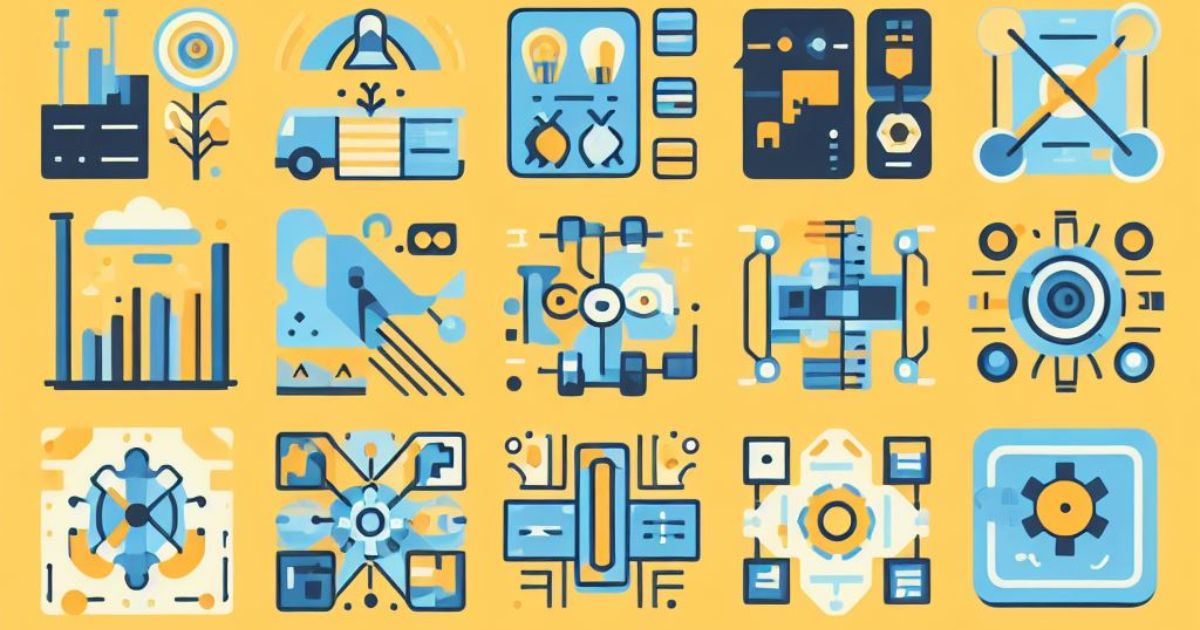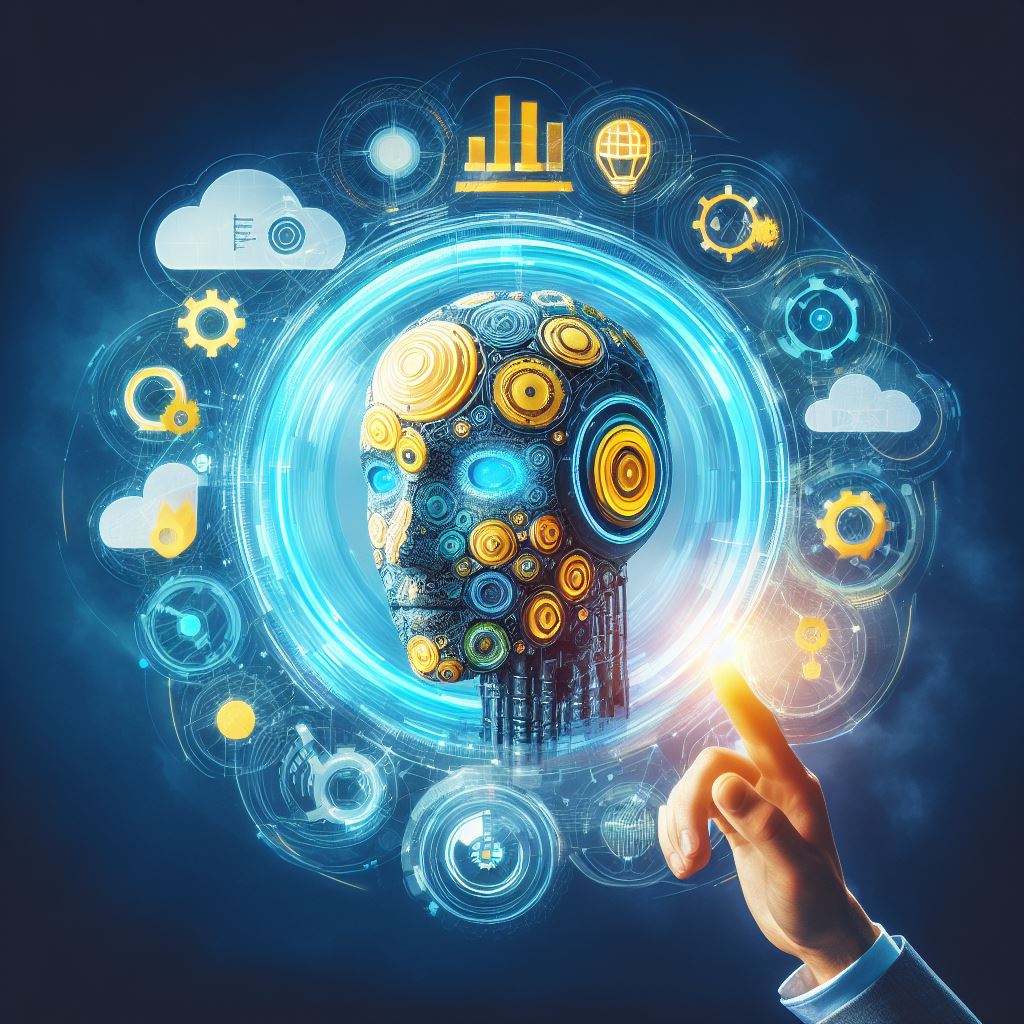Modeling Human Cognitive Processes of AI
October 15, 2023 | by insighttechdaily.com

Table of Contents
The Foundation of Artificial Intelligence
Artificial Intelligence, or AI as it is commonly known, serves as the bedrock upon which our technological advancements stand. This groundbreaking field encompasses a vast range of computer science disciplines, including machine learning, natural language processing, and computer vision. What makes AI truly fascinating is its ability to mimic human intelligence and perform complex tasks with speed and accuracy that surpass human capabilities.
At the heart of AI lies the concept of machine learning, which enables systems to learn and improve from experience without being explicitly programmed. Through extensive data analysis and pattern recognition, AI algorithms continually refine their understanding and decision-making processes. This remarkable trait allows AI to adapt to new scenarios and possess the potential for further advancements and innovations in the future.
With the foundation of Artificial Intelligence firmly established, society embarks on a thrilling journey of exploration and discovery. Industries ranging from healthcare and finance to transportation and entertainment are embracing the transformative power of AI. As we delve deeper into the inner workings of AI, we unlock its potential to revolutionize the world as we know it. Exciting times lay ahead as AI continues to evolve and shape the future of technology and human progress.
Unveiling the Inner Workings of AI
Artificial Intelligence (AI) has become a captivating realm of innovation, continually pushing the boundaries of what machines can achieve. Unveiling the inner workings of AI unveils a world of possibilities that were once mere dreams. It is a journey that delves deep into the intricate mechanisms of AI, uncovering the secrets behind its intelligent and responsive nature.
At its core, AI is built upon a network of algorithms that work together in harmony to process vast amounts of data. These algorithms are carefully designed to mimic the human brain’s cognitive processes, enabling AI to learn, analyze, and interpret information with remarkable efficiency. By deciphering the cognitive processes of AI, we gain insights into how it perceives and understands the world around it, completely transforming the way we interact with machines. The intricate dance between data, algorithms, and cognition is what propels AI forward, captivating us with its untapped potential.
In the next section, we will delve deeper into the complexity of machine learning and its pivotal role in AI’s cognitive abilities. As we journey through the realm of AI, we will explore its remarkable problem-solving capabilities, uncovering the decision-making processes that drive it forward. Stay tuned as we embrace the power of AI’s pattern recognition and witness how it adapts, learns, and evolves. The future of innovation lies within the limitless possibilities of AI, and understanding its inner workings is the first step towards unlocking its true potential.
Decoding the Cognitive Processes of AI
AI has undoubtedly revolutionized the way we view cognitive processes. It is fascinating to unravel the inner workings of AI and witness its ability to comprehend, analyze, and respond to complex information. The cognitive processes of AI involve various stages, from perception to understanding, reasoning, and decision-making, each mimicking the human thought process in its own remarkable way.
At the core of AI’s cognitive abilities lie neural networks, a network of interconnected artificial neurons designed to replicate the human brain’s structure and functions. These networks enable AI to process vast amounts of data, identify patterns, and make connections, ultimately leading to sophisticated learning and problem-solving capabilities. Witnessing the cognitive prowess of AI as it learns and adapts in real-time is truly awe-inspiring – a testament to the remarkable advancements in the field of artificial intelligence.
As we delve deeper into the decoding process, we begin to unravel the complexity behind AI’s cognitive functioning. The ability of AI to perceive and recognize patterns is particularly remarkable. Its power of pattern recognition enables it to make sense of complex data, detect anomalies, and predict outcomes, all with astonishing accuracy. This foundational cognitive process not only allows AI to understand the world around it but also facilitates its decision-making abilities, ensuring optimal responses to various scenarios.
The elucidation of AI’s cognitive processes has far-reaching implications. It opens doors to fascinating possibilities and potential future innovations. With each new discovery, we advance our understanding of AI’s cognitive capabilities, paving the way for groundbreaking applications in fields such as healthcare, finance, and robotics. Decoding the cognitive processes of AI is an exhilarating journey that grants us a glimpse into the extraordinary potential of artificial intelligence.
• AI’s cognitive processes involve stages such as perception, understanding, reasoning, and decision-making
• Neural networks are at the core of AI’s cognitive abilities, replicating the structure and functions of the human brain
• These networks enable AI to process vast amounts of data, identify patterns, and make connections
• AI’s pattern recognition abilities allow it to understand complex data, detect anomalies, and predict outcomes with accuracy
• Decoding AI’s cognitive processes has implications for healthcare, finance, robotics, and other fields
• Each discovery in this field advances our understanding and opens doors to groundbreaking applications
Unraveling the Complexity of Machine Learning
Machine learning, the backbone of artificial intelligence, is a truly fascinating field that continues to amaze and astound both experts and enthusiasts. At its core, machine learning allows computer systems to learn and improve from experience without being explicitly programmed. The complexity of this process lies in the intricate algorithms and mathematical models that work tirelessly behind the scenes, enabling machines to decipher patterns, recognize objects, and even make predictions. It is truly extraordinary to witness the power of machine learning as it unravels the mysteries of data and transforms them into valuable insights.
Imagine a world where machines possess the ability to learn and adapt, much like the human mind. This is the realm that machine learning offers, one that is bursting with potential and innovation. As technology advances, so does the complexity of machine learning, with algorithms becoming more sophisticated and capable of processing vast amounts of data in record time. With each passing day, we move closer to unraveling the true essence of machine learning, discovering its hidden potential, and leveraging it to revolutionize various aspects of our lives. Embrace the excitement as we delve deeper into the complexities of machine learning, unraveling its secrets and paving the way for a future brimming with endless possibilities.
The Role of Neural Networks in AI Cognition
Neural networks play a pivotal role in the cognition of artificial intelligence, functioning as the essential building blocks of learning and processing information. These intricate networks consist of interconnected nodes, known as artificial neurons, that work together to imitate the way human brains function. Through an exquisitely complex system of connections and computations, neural networks enable AI to perceive, analyze, and make sense of vast amounts of data. It is truly awe-inspiring to witness the immense power of neural networks, as they possess the ability to recognize patterns, adapt to new information, and even make predictions with remarkable accuracy. The fusion of AI and neural networks has opened up unprecedented possibilities, fueling the journey towards a future where intelligent machines can surpass human capabilities.
In the realm of AI cognition, neural networks serve as the backbone of machine learning, allowing AI systems to acquire knowledge and improve performance over time. By training these networks with enormous datasets, AI models can learn to recognize and classify objects, understand natural language, and even exhibit creative thinking. This groundbreaking technology marks a paradigm shift in our understanding of intelligence and its implementation in machines. Neural networks unravel the incredible complexity of AI cognition, providing a glimpse into how these systems process information, make decisions, and ultimately mimic human thought processes. As neural networks continue to evolve and advance, we find ourselves on the precipice of a new era, where the boundaries of AI cognition are constantly being pushed to new frontiers.
Analyzing AI’s Ability to Learn and Adapt
The ability of artificial intelligence (AI) to learn and adapt is truly astounding. With each passing day, AI algorithms are becoming smarter and more sophisticated, continuously improving their performance in a wide range of tasks. From recognizing patterns in massive datasets to making complex decisions, AI’s learning capabilities know no bounds. It is this remarkable ability that sets AI apart from traditional computer systems, making it a powerful tool for solving complex problems and driving innovation.
One of the key factors that contribute to AI’s ability to learn and adapt is its reliance on machine learning techniques. By training AI models with vast amounts of data, these algorithms can identify patterns, make predictions, and eventually, improve their accuracy over time. This iterative learning process allows AI to continuously refine its understanding and make better decisions based on new information. Whether it’s in healthcare, finance, or even autonomous vehicles, the adaptability of AI enables it to thrive in a variety of domains, providing valuable insights and transforming industries along the way.
Truly, the potential of AI to learn and adapt is boundless. As researchers and engineers continue to push the boundaries of what AI can achieve, we can expect even more groundbreaking developments in the future. With its ability to process and analyze enormous amounts of data at incredible speeds, AI has the power to revolutionize the way we look at problems and find innovative solutions. The journey of unraveling and harnessing the full potential of AI’s ability to learn and adapt is an exciting one, and it holds tremendous promise for the future of technology and human progress.
Exploring the Decision-Making Processes in AI
Artificial Intelligence (AI) has revolutionized the way decisions are made, transforming mundane tasks into efficient and seamless processes. By examining the decision-making processes in AI, we can unlock a world of possibilities and unleash its true potential. Without relying on human intervention, AI is able to analyze vast amounts of data, identify patterns, and make decisions, surpassing human capabilities in terms of speed and accuracy.
One of the key aspects of AI’s decision-making processes is its ability to constantly learn and adapt. Through advanced algorithms and neural networks, AI can continuously gather feedback from its environment and refine its decision-making skills. This dynamic learning process enables AI to adjust its decisions based on changing circumstances and improve its performance over time. As AI continues to evolve, we can expect even greater sophistication in its decision-making abilities, leading to breakthroughs in various fields such as healthcare, finance, and transportation. The future holds immense potential as we uncover the mysteries behind AI’s decision-making processes and harness its power for the betterment of society.
Embracing the Power of AI’s Pattern Recognition
With the rapid advancements in artificial intelligence (AI), we are witnessing the incredible power of pattern recognition being harnessed like never before. AI has the remarkable ability to analyze vast amounts of data and identify intricate patterns that human eyes might miss. This technology is revolutionizing various fields, from healthcare to finance, and from marketing to transportation. The sheer potential of AI’s pattern recognition cannot be understated – it has the capacity to transform industries, uncover invaluable insights, and push the boundaries of human innovation to new heights.
Imagine having a technology that can sift through mountains of data in seconds, instantly detecting patterns and trends. AI’s pattern recognition is not only lightning-fast but also astonishingly accurate. It can identify hidden patterns, connections, and correlations that may not be obvious to the human mind. This extraordinary capability not only helps us understand complex systems better but also opens doors to opportunities that were previously beyond our reach. From predicting customer preferences to diagnosing diseases at an early stage, from optimizing supply chains to creating personalized experiences – AI’s pattern recognition holds the key to unlocking a multitude of possibilities, propelling us into a future painted with efficiency, accuracy, and innovation.
The Evolution of AI’s Problem-Solving Capabilities
Advancements in the field of artificial intelligence have been nothing short of remarkable. One of the most fascinating aspects of AI is its ever-evolving problem-solving capabilities. With each passing day, AI systems are becoming more adept at tackling complex issues, going beyond the realms of human imagination. The evolution of AI’s problem-solving capabilities is a testament to the incredible potential that lies within this technology.
In the early days, AI struggled with basic problem-solving tasks, limited by the knowledge and algorithms provided by programmers. However, with the advent of machine learning and deep learning techniques, AI has made great leaps forward. It can now analyze vast amounts of data, recognize patterns, and make intelligent decisions autonomously. This ability to learn and adapt has unleashed a world of possibilities, from creating innovative solutions in healthcare and finance to optimizing supply chains and revolutionizing the way we live and work. The evolution of AI’s problem-solving capabilities is an exciting journey that promises to shape the future of technology and propel us into new realms of innovation.
Unleashing the Potential of AI for Future Innovations
Artificial Intelligence (AI) has rapidly gained momentum, transforming industries and revolutionizing the way we live and work. With its immense potential, AI is poised to unleash a wave of future innovations that will reshape our world. The possibilities are limitless as AI continues to push boundaries and break new ground in various fields.
One area where AI has shown exceptional promise is in healthcare. By leveraging its cognitive capabilities, AI has the potential to revolutionize diagnosis and treatment, leading to more accurate and personalized patient care. Imagine a future where AI-powered systems can analyze vast amounts of medical data, identify patterns, and predict diseases before they even manifest. This could significantly improve early detection rates, ultimately saving countless lives. The potential impact of AI on healthcare is both awe-inspiring and exhilarating.
What is the foundation of Artificial Intelligence?
The foundation of Artificial Intelligence is a combination of algorithms, data, and computing power that enable machines to mimic human intelligence.
How does AI work?
AI works by using algorithms to process and analyze large amounts of data, allowing machines to recognize patterns, make decisions, and learn from experience.
Can you explain the cognitive processes of AI?
AI cognitive processes involve perception, reasoning, problem-solving, and learning. Machines are designed to imitate human thinking and decision-making processes.
What is machine learning and how does it relate to AI?
Machine learning is a branch of AI that focuses on algorithms and statistical models that allow machines to learn from data and improve performance without being explicitly programmed.
What role do neural networks play in AI cognition?
Neural networks are a key component of AI cognition, mimicking the way the human brain processes information. They enable machines to recognize patterns and make connections.
Can AI learn and adapt?
Yes, AI has the ability to learn and adapt. Through machine learning algorithms and data analysis, AI systems can constantly improve their performance and adapt to changing circumstances.
How does AI make decisions?
AI makes decisions by analyzing data, comparing patterns, and applying predefined rules and algorithms. It leverages its computational power to make informed and efficient decisions.
What is the power of AI’s pattern recognition?
AI’s pattern recognition allows it to identify complex patterns and correlations in data that may not be readily apparent to humans. This enables AI to make accurate predictions and insights.
How has AI’s problem-solving capabilities evolved over time?
AI’s problem-solving capabilities have evolved significantly over time, thanks to advancements in machine learning and computing power. AI can now tackle complex problems and find innovative solutions.
How can AI unleash future innovations?
AI has the potential to revolutionize various industries and drive future innovations by automating tasks, improving efficiency, and enabling new possibilities in areas such as healthcare, finance, and transportation.
RELATED POSTS
View all


